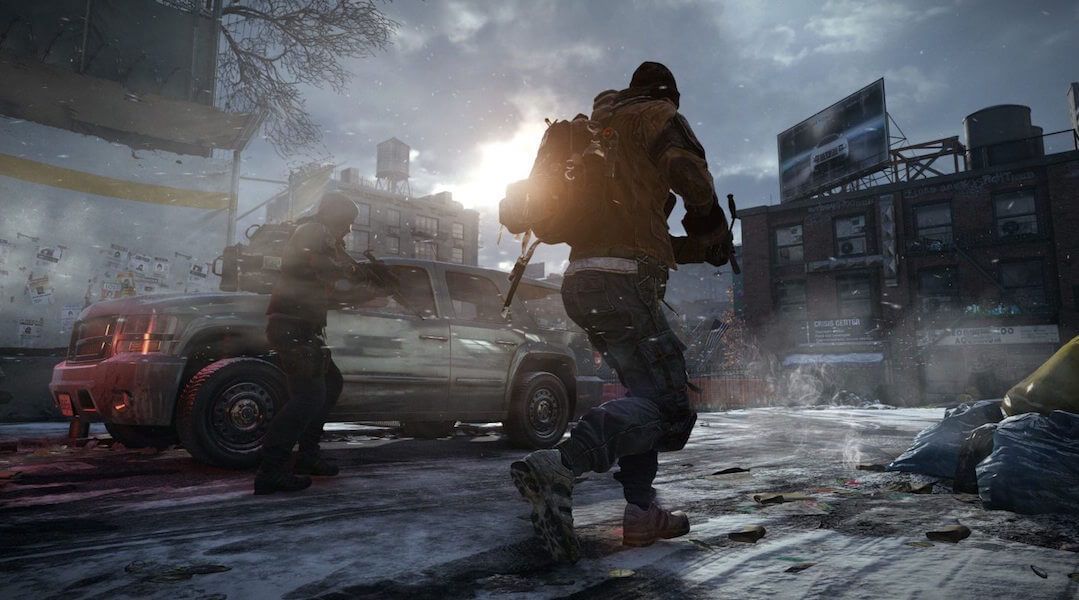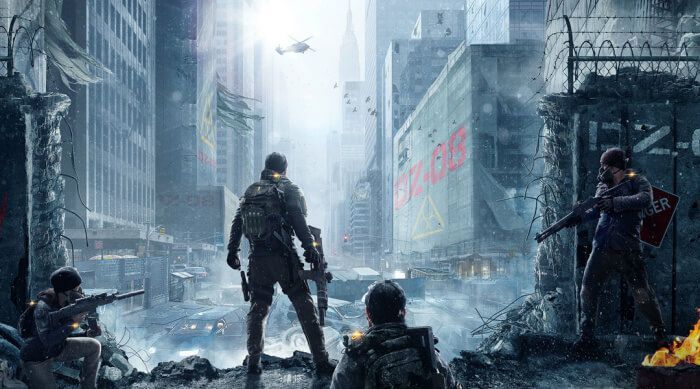
Stop Comparing The Division to Destiny
By Anthony Taormina 26 January 2016
When early previews of Tom Clancy’s The Division started comparing the game to Destiny, Bungie’s hugely popular shooter/MMO hybrid, many gamers started paying attention. Granted, The Division had already built up a ton of buzz thanks to prior gameplay trailers and E3 demos, but it was the Destiny comparison that seemingly helped take hype for the game to new levels.
However, having not played The Division personally, it was hard to see the comparisons. Not why previews were making the comparisons mind you – as any chance to fit Destiny into a preview is sure to boost its profile – but whether the comparisons were valid. And now, after having spent a considerable amount of time with The Division beta (admittedly a small portion of the game), it’s even more confusing to compare the two.
Two Very Different Looter Shooters
Now, obviously comparing a third person shooter and a first person shooter is sure to raise some eyebrows initially, but there are some similarities between Destiny and The Division. Both feature a loot-based rewards system that includes random drops and vendors. Both tout a cooperative online element that puts a small group of friends against a particular encounter. But after that the similarities end.

While The Division and Destiny do have PvP elements, they couldn’t be more different from each other. For Destiny, PvP is essentially the traditional multiplayer seen in countless FPSes, which pits two teams of players (or solo players) against each other in a series of modes. There are wrinkles unique to Destiny, like Supers, exotic weapons, and different subclasses, but there’s nothing in the game that hasn’t been seen before in one form or another.
Enter the Dark Zone
The Division, on the other hand, uses PvP as a key component of its Dark Zones, areas of the sprawling New York map where friendly fire is active between non-teammates. Essentially, when a player enters a Dark Zone they are still completing missions with their team and watching fellow teams run around, but there’s an added element of danger while in the Dark Zone. At any moment, a seemingly friendly team can go ‘Rogue’ and try to take you out.
At a glance, the Dark Zone concept is an intriguing one, but The Division beta doesn’t do a great job of selling it. There are tense moments of trying to extract loot – the only way to actually unlock the items that drop in the Dark Zone – before a Rogue tries to kill you and steal it, but that’s really all the mode had to offer during the beta. Either players try to run around and steal, or they try to police the Dark Zone by killing Rogues and protecting teammates.

In our experience, though, the Dark Zones featured many more “troll-y” players than helpful ones. In fact, it was uncommon to find groups of Rogues camping the transition area from PvE to Dark Zone, simply waiting to kill fellow players. Since those players had to actually do anything in the Dark Zone they had no loot; the Rogues were getting enjoyment simply out of ruining someone else’s experience.
Even those players who were clearly outnumbered and made it through the Dark Zone would try to take on groups, because it seemed the easiest way to get loot. NPCs in the mode do drop gear, but there were so few of them in the beta. The real action in the DZ was fighting other players, but engaging them meant turning to the dark side.
If the Dark Zone is to be a main part of The Division there need to be incentives to do more than just kill fellow players. They also need to address concerns over cheating and hacking, but that’s another issue entirely.
As far as the Dark Zone is concerned, Ubisoft needs to give players equal incentives to be good guys if they so choose. Or simply give teams more to do in the area that combines the PvE and the PvP elements.
Division’s Gunplay Doesn’t Stand Out
More than anything, what sets The Division beta apart from Destiny for me is the mechanics. Say what you will about the story or the mission in structure in Destiny, but the gunplay is top notch, arguably some of the best the First Person shooter genre has to offer at this moment. The Division, on the other hand, while tight for a cover-based shooter, doesn’t feel that much different from the pack. Popping in and out of cover, for example, could be faster and a little more intuitive.

For that matter, the gunplay in The Division is structured to be more like an MMO than a straight shooter. Enemies don’t drop with an instant headshot and boss enemies are meant to be greater bullet sponges. In a way that’s similar to Destiny, but some may find The Division’s enemies to be substantially more resilient and the gunfights to be more tedious. A headshot in Destiny can typically take out the low level fodder, but that was never the case with the enemies we encountered in The Division beta.
Anticipation is Still High
Make no mistake, The Division ranks very high on my list of most anticipated games, but after sitting down to play its beta I was struck by how markedly different it was from Destiny, even beyond the fact it’s a third-person shooter. Division may entice the same crowd, but it shouldn’t be a replacement for Destiny, not in any way shape or form. Even the endgame, which we have yet to hear much about, doesn’t sound as if it will be like Destiny’s raids.
There’s obviously good reasons why players and gaming sites are trying to find the next Destiny; Bungie’s game has been dominating the conversation for over a year. But The Division simply isn’t the next Destiny, or even a replacement for Destiny. The game is its own thing, and that’s perfectly okay.
Tom Clancy’s The Division releases March 8, 2016 for PC, PS4, and Xbox One.
